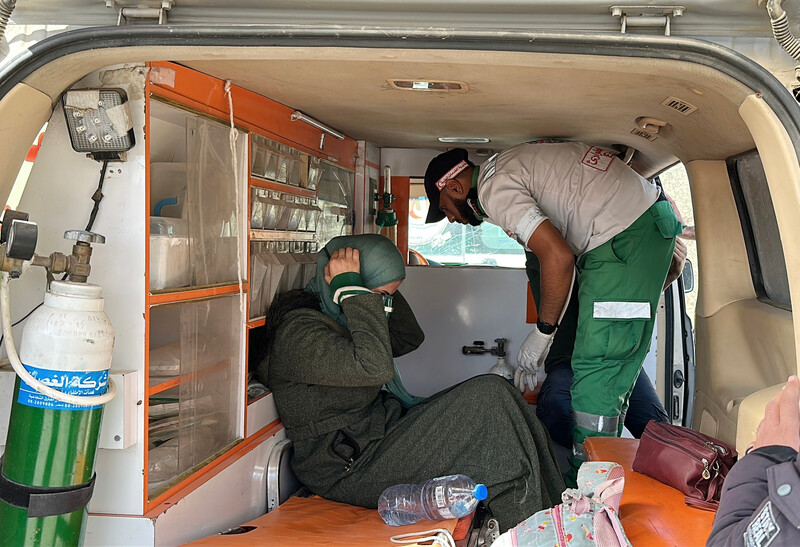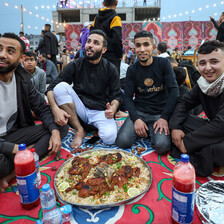The Electronic Intifada 22 November 2024

Gaza’s health workers are prevented from providing all the care that is needed.
APA imagesDina Abu al-Roos wasn’t doing anything unusual on that fateful day. She was in her kitchen cooking for her three children when a bomb exploded on 8 August just outside her home, sending shrapnel flying into her face.
After a series of surgeries to remove it from her eyes, Dina was left completely blind.
“I need my eyes to see my children, to watch over them, to make sure they are safe,” Dina said.
“I need my eyes to cook their food, to clean our tent and to protect them from disease. Now, instead of me taking care of them, they are taking care of me.”
Her two boys and a girl are aged 3, 10 and 12.
“I hope that one day I can see again, even if just a little. I need to be their mother again,” Dina added.
She and other patients in need of eye medical treatments in Gaza face a dire situation: The closure of boundary crossings has resulted in severe shortages of medical supplies, including eye drops and surgical equipment.
The medical facilities still operating in Gaza prioritize life-saving procedures, leaving eye treatments on the sidelines.
Dr. Mohamed Tawfik, an Egyptian ophthalmologist who came to Gaza at the start of October as part of a relief mission, expressed his frustration with the state of healthcare in the region.
“People here are going blind, not because their conditions are untreatable, but because the treatments are simply unavailable,” he said in an interview. “Over half of the necessary eye medications are out of stock, and we are forced to reuse medical instruments due to the shortage.”
One patient, 18-year-old Sama al-Jarousha, had no history of eye problems. But a few months ago, she noticed increasing sensitivity and redness in her eyes, and her vision began to blur.
She was told she had high intraocular pressure, a condition that could lead to glaucoma if not treated promptly. Sama was prescribed eye drops to manage the pressure and was told that surgery to remove cataracts would be necessary.
“The war destroyed everything”
However, due to the unavailability of the required equipment and medications, the surgery was postponed indefinitely.
Sama searched desperately for the eye drops in pharmacies across Gaza, but the blockade meant supplies were exhausted. As time passed, her condition worsened, eventually leading to complete vision loss in both eyes.
“I finished high school full of life and optimism. I had dreams and a future ahead of me,” Sama said. “But the war destroyed everything – my dreams, my health and in the end, it took away the light from my eyes.”
The World Health Organization (WHO) reports a critical shortage of medical supplies, including ophthalmic solutions, in the Gaza Strip. Tens of thousands have been injured since the Israel attacks began more than a year ago.
Doctors in Gaza have struggled to provide basic care under dire circumstances, Mohamed Tawfik said, pointing out that the primary goal is to keep the patient alive.
“Treating secondary injuries like eye damage becomes a lesser priority,” he said. “However, when a patient has to wait for over a year for surgery or medication, the damage is often irreversible.”
Sama al-Jarousha is distraught.
“They bomb us and block the borders. They don’t just kill us with missiles; they kill our hope and our attempts to survive,” Sama said.
“I cry every day. I can’t accept that I am now blind because of this injustice.”
Mustafa Tayseer al-Burai is a journalist in Gaza.



